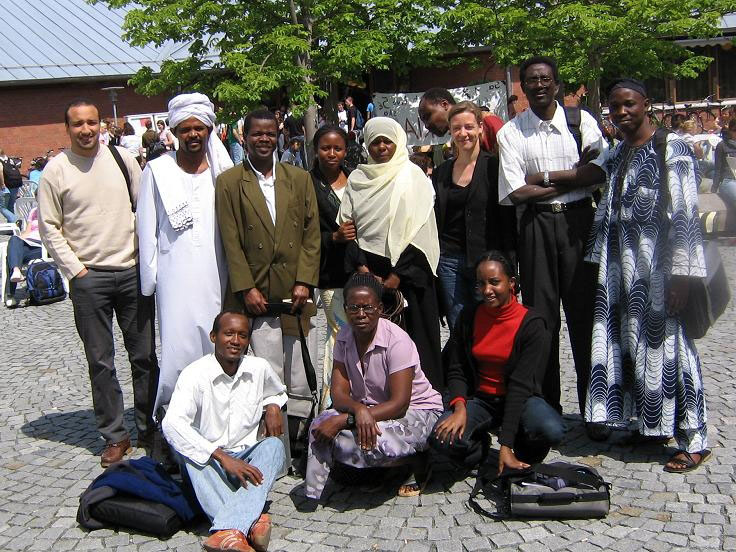Summer Academy 2006
Shari’a Debates and Their Perception by Christians and Muslims in Selected African Countries
This new project is part of Volkswagen Foundation’s funding initiative on “Knowledge for Tomorrow: Cooperative Research Projects in Sub-Saharan Africa”, which aims to contribute to the development and sustainable reinforcement of academic research capacity in sub-Saharan Africa. This is to be achieved through the funding of research projects developed and carried out by young African scholars in cooperation with Bayreuth University, providing junior researchers in Africa with an opportunity to enhance their skills, academic qualifications, and networks of colleagues in Africa and in Europe.
 Eleven “junior scholars” have been nominated after a highly competitive selection process. Abdul-Fatah Kola Makinde, of Osun State College of Education, Nigeria, researches and writes on the “independent shari’a panels” established in recent years in several south-western Nigerian states. Chikas Danfulani, of the University of Jos, Nigeria, studies shifting ideas about female Muslim education in Northern Nigeria. The Tunisian junior scholar Ramzi Ben Amara, a graduate of Bayreuth University, undertakes research on the recent developments of the Izala a reformist Islamic movement in Nigeria.
Eleven “junior scholars” have been nominated after a highly competitive selection process. Abdul-Fatah Kola Makinde, of Osun State College of Education, Nigeria, researches and writes on the “independent shari’a panels” established in recent years in several south-western Nigerian states. Chikas Danfulani, of the University of Jos, Nigeria, studies shifting ideas about female Muslim education in Northern Nigeria. The Tunisian junior scholar Ramzi Ben Amara, a graduate of Bayreuth University, undertakes research on the recent developments of the Izala a reformist Islamic movement in Nigeria.
Bernardin Mfumbusa, of St. Augustin University in Mwanza, Tanzania, prepares a case study on Shari’a debates and the erosion of the national consensus in Tanzania in Kondoa township. William Kopwe, a graduate of St. Paul’s United Theological College, Limuru, Kenya, on the other hand studies the religio-political and social challenges of Shari’a implementation in Tanzania mainland on a broader scale.
Rebecca Osiro, also a graduate of St. Paul’s UTC, does research in the field of women’s perspectives on the role of kadhi’s courts in Western Kenya. Halkano Abdi Wario, Moi University, Eldoret Kenya, investigates the recent debates on the future role of the Islamic court system in the religiously mixed town of Isiolo in Northern Kenya. Esha Faki Mwinyihaji, Maseno University in Kenya, specialises in the problem of Islamic law and Muslim women’s participation in the Kenyan public life.
The Sudan is represented by three junior scholars. Salma Mohammed’s research concentrates on the impact of Shari’a implementation among Sudanese Christians in Khartoum. Ahmad al-Hassab, University of Dallanj in Kordofan province, studies the effects of a dual economic system in Sudan after the implementation of the Comprehensive Peace Agreement in 2005. His research highlights the possible problems of an Islamic and capitalist economic system in the same country. Mohammad Hamed, Shendi University, investigates the influence of Islamic law on family planning among Muslims in the Sudanese town of Shendi.
To achieve the aims of the whole project this really “pan-African” group of junior scholars was invited to study the summer term 2006 at the University of Bayreuth. Due to the multidisciplinary background of the junior scholars and the different academic levels, M.A., PhD and post-doc, the Chairs of Religious Studies, Anthropology and Islamic Studies at Bayreuth University offered them an intensive coaching in the theory and practice of different methodologies in social-science research. Endowed with new ideas they went back to their home countries to undertake first steps in their field research.
By Franz Kogelmann
First published in NAB Newsletter of African Studies at Bayreuth University, Vol. VI/1 Fall 2006/Spring 2007, p. 5-6,
http://www.old.uni-bayreuth.de/sfbs/sfb-fk560/index-publikationen.html